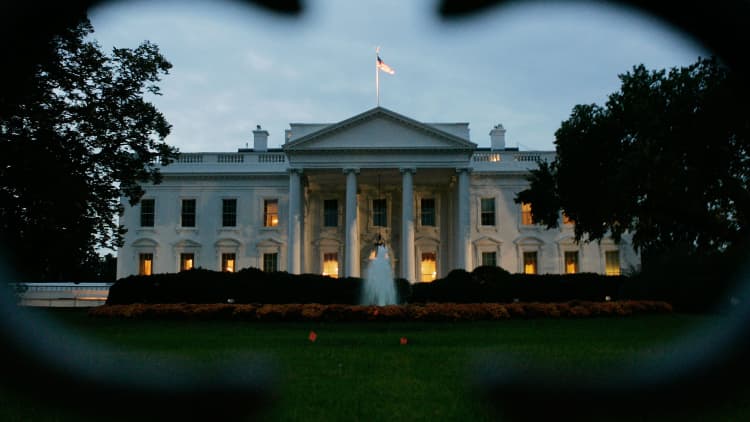
President Donald Trump's Council of Economic Advisers on Friday released the second in a series of reports on how proposed changes to the tax code could influence economic growth.
The CEA predicted that corporate tax cuts alone would produce GDP growth of between 3 and 5 percent in as little as three years. The cuts are part of the tax reform package currently being finalized in Congress and expected to be unveiled as a bill next week.
From the report:
"Our findings indicate that the business side of the Unified Framework would increase GDP by between 3 and 5 percent over the baseline long-run projection. The GDP effects we estimate are growth impacts from corporate tax reform alone. The literature and models vary as to the timeframe over which these benefits could be realized; some have the effects as soon as 3 to 5 years, others find it could take at least double that time. There will be additional GDP effects from reforms to individual income and pass-through business taxes, which we have not modeled."
On a call with reporters Friday, CEA Chairman Kevin Hassett said he was optimistic that the Trump administration's current budget proposal, combined with corporate tax cuts, would create enough growth to make overall tax cuts revenue neutral once they were fully implemented into the economy.
"We want to help the middle class get the raise it deserves, and the best way to keep the economy going and to knock it out of the low growth of past decades is to do something to give it a boost in the arm, and that's tax reform, regulatory reform and infrastructure," Hasset said. "That's corporate tax reform in particular, that defeats the offshoring model and encourages firms to locate their activity back here in the United States."
Hassett acknowledged that CEA's models would likely be impacted by the results of ongoing negotiations on Capitol Hill to finalize the tax reform bill.
"We modeled the corporate side with the details available. We really need to know where the individual brackets are and how that relates to income distribution," he said.
Hassett also emphasized the dual importance of cutting the statutory corporate tax rate and easing the repatriation of funds U.S. companies hold overseas.
"Our current tax code incentivizes this shell game, and massively increases our trade deficit," Hassett said of the practice known as offshoring. By reducing the corporate tax rate to 20 percent, "firms will have much less incentive to play this round-trip game."
Hassett's predictions about corporate profits and wage growth have already come under scrutiny from some economists, who argue that the administration is drawing conclusions about growth that are not backed up by historical or empirical evidence.
Former Clinton administration Treasury Secretary Larry Summers recently wrote in a blog post that the Trump administration's predictions linking wage growth and corporate tax cuts are "some combination of dishonest, incompetent and absurd."
Read the entire report below.


